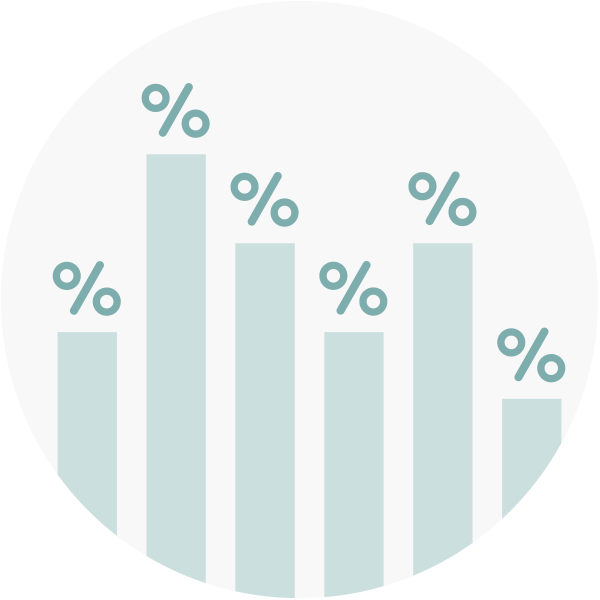Explore interest rates
Use this tool throughout your homebuying process to explore the range of mortgage interest rates you can expect to receive. See how your credit score, loan type, home price, and down payment amount can affect your rate. Knowing your options and what to expect helps ensure that you get a mortgage that is right for you. The rates were last updated on April 1, 2025.
Keep in mind that the interest rate is important, but not the only cost of a mortgage. Fees, points, mortgage insurance, and closing costs all add up. Compare Loan Estimates to get the best deal.

In , most lenders in our data are offering rates at or below .
Data table
The following table will populate with our data results
| Loan Rates |
|---|
| number of corresponding rates |
Based on the information you entered, we don't have enough data to display results. Change your settings or revert to our default values.
We're sorry!
We're having trouble connecting to our data.
Try again another time.
Explore what a lower interest rate means for your wallet
Interest costs over the first 5 years
$150,000
$150,000
Over the first 5 years, an interest rate of 1% costs $0 more than an interest rate of 1%.
Interest costs over 30 years
$150,000
Can change
$150,000
Can change
Over 30 years, an interest rate of 1% costs $0 more than an interest rate of 1%.
With the adjustable-rate mortgage you've chosen, the rate is only fixed for the first 5 years. Your interest costs in the future can change.
Interest is only one of many costs associated with getting a mortgage. Learn more
Interest costs over the first 5 years
Over the first 5 years, an interest rate of 1% costs $0 more than an interest rate of 1%.
Interest costs over 30 years
$150,000
Can change
$150,000
Can change
Over 30 years, an interest rate of 1% costs $0 more than an interest rate of 1%.
With the adjustable-rate mortgage you've chosen, the rate is only fixed for the first 5 years. Your interest costs in the future can change.
Over 30 years, an interest rate of 1% costs $0 more than an interest rate of 1%.
With the adjustable-rate mortgage you've chosen, the rate is only fixed for the first 5 years. Your interest costs in the future can change.
Interest is only one of many costs associated with getting a mortgage. Learn more
About our data source for this tool
The lenders in our data include a mix of large banks, regional banks, and credit unions. The data is updated semiweekly every Wednesday and Friday at 7 a.m. In the event of a holiday, data will be refreshed on the next available business day.
The data is provided by Curinos , New York, NY. Curinos collects the data directly from lenders and every effort is made to collect the most accurate data possible, but they cannot guarantee the data’s accuracy.
